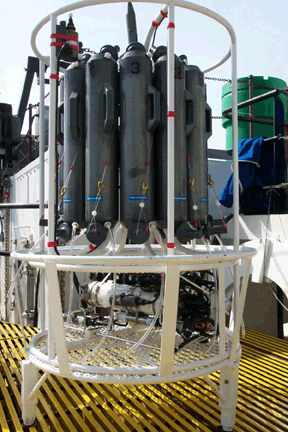Related Research Articles

A pollutant or novel entity is a substance or energy introduced into the environment that has undesired effects, or adversely affects the usefulness of a resource. These can be both naturally forming or anthropogenic in origin. Pollutants result in environmental pollution or become public health concerns when they reach a concentration high enough to have significant negative impacts.
EPA most commonly refers to the United States Environmental Protection Agency.

The Environmental Protection Agency (EPA) is an independent agency of the United States government tasked with environmental protection matters. President Richard Nixon proposed the establishment of EPA on July 9, 1970; it began operation on December 2, 1970, after Nixon signed an executive order. The order establishing the EPA was ratified by committee hearings in the House and Senate.

Water quality refers to the chemical, physical, and biological characteristics of water based on the standards of its usage. It is most frequently used by reference to a set of standards against which compliance, generally achieved through treatment of the water, can be assessed. The most common standards used to monitor and assess water quality convey the health of ecosystems, safety of human contact, extent of water pollution and condition of drinking water. Water quality has a significant impact on water supply and often determines supply options.
Sewage disposal regulation and administration describes the governance of sewage treatment and disposal.

The Federal Insecticide, Fungicide, and Rodenticide Act (FIFRA) is a United States federal law that set up the basic U.S. system of pesticide regulation to protect applicators, consumers, and the environment. It is administered and regulated by the United States Environmental Protection Agency (EPA) and the appropriate environmental agencies of the respective states. FIFRA has undergone several important amendments since its inception. A significant revision in 1972 by the Federal Environmental Pesticide Control Act (FEPCA) and several others have expanded EPA's present authority to oversee the sales and use of pesticides with emphasis on the preservation of human health and protection of the environment by "(1) strengthening the registration process by shifting the burden of proof to the chemical manufacturer, (2) enforcing compliance against banned and unregistered products, and (3) promulgating the regulatory framework missing from the original law".

United States environmental law concerns legal standards to protect human health and improve the natural environment of the United States. While subject to criticism at home and abroad on issues of protection, enforcement, and over-regulation, the country remains an important source of environmental legal expertise and experience.
The Commission for Environmental Cooperation is an intergovernmental organization established by Canada, Mexico, and the United States to implement the North American Agreement on Environmental Cooperation (NAAEC), the environmental side accord to the North American Free Trade Agreement. The CEC's mission is to facilitate cooperation and public participation to foster conservation, protection and enhancement of the North American environment for the benefit of present and future generations, in the context of increasing economic, trade and social connections among Canada, Mexico and the United States.

The New South Wales Office of Environment and Heritage (OEH), a former division of the Government of New South Wales between April 2011 and July 2019, was responsible for the care and protection of the environment and heritage, which includes the natural environment, Aboriginal country, culture and heritage, and built heritage in New South Wales, Australia. The OEH supported the community, business and government in protecting, strengthening and making the most of a healthy environment and economy within the state. The OEH was part of the Department of Planning and Environment cluster and managed national parks and reserves.

Environmental crime is an illegal act which directly harms the environment. These illegal activities involve the environment, wildlife, biodiversity and natural resources. International bodies such as, G7, Interpol, European Union, United Nations Environment Program, United Nations Interregional Crime and Justice Research Institute, have recognized the following environmental crimes:
Environmental Quality is a set of properties and characteristics of the environment, either generalized or local, as they impinge on human beings and other organisms. It is a measure of the condition of an environment relative to the requirements of one or more species, any human need or purpose.

Reorganization Plan No. 3 was a United States presidential directive establishing the Environmental Protection Agency (EPA), effective December 2, 1970. The order, published in the Federal Register on October 6, 1970, consolidated components from different federal agencies to form the EPA, "a strong, independent agency" that would establish and enforce federal environmental protection laws.

The Environmental Protection Agency (EPA) is responsible for protecting and improving the environment as a valuable asset for the people of Ireland. It operates independently under the Department of the Environment, Climate and Communications.

The California Environmental Protection Agency (CalEPA) is a state cabinet-level agency within the government of California. The mission of CalEPA is to restore, protect and enhance the environment, to ensure public health, environmental quality and economic vitality.

The Ministry of Environment, was a Cabinet-level ministry of Government of Pakistan, tasked and primarily responsible for planning, coordinating, promoting, protecting and overseeing the policy implementation of government sanctioned environmental and forestry programmes in the country. Its government activities included conservation, survey of fauna, flora, forestry, wildlife ; protection and prevention of pollution control, afforestation, and land degradation mitigation. The MoE was also responsible for administrating and establishing the National Parks of Pakistan.

Water quality laws govern the protection of water resources for human health and the environment. Water quality laws are legal standards or requirements governing water quality, that is, the concentrations of water pollutants in some regulated volume of water. Such standards are generally expressed as levels of a specific water pollutants that are deemed acceptable in the water volume, and are generally designed relative to the water's intended use - whether for human consumption, industrial or domestic use, recreation, or as aquatic habitat. Additionally, these laws provide regulations on the alteration of the chemical, physical, radiological, and biological characteristics of water resources. Regulatory efforts may include identifying and categorizing water pollutants, dictating acceptable pollutant concentrations in water resources, and limiting pollutant discharges from effluent sources. Regulatory areas include sewage treatment and disposal, industrial and agricultural waste water management, and control of surface runoff from construction sites and urban environments. Water quality laws provides the foundation for regulations in water standards, monitoring, required inspections and permits, and enforcement. These laws may be modified to meet current needs and priorities.
Angafaru is a 404 ha protected area of marine biodiversity encompassing a 200m boundary outside the outer reef edge of Angafaru, Dhiguthila, Dhonfanu Thila and Mahaanagaa Thila, in the Maldives.

The Environmental Protection Agency, is an agency of Ministry of Environment, Science, Technology and Innovation, established by EPA Act 490 (1994). The agency is dedicated to improving, conserving and promoting the country’s environment and striving for environmentally sustainable development with sound, efficient resource management, taking into account social and equity issues. It oversees the implementation of the National Environment Policy. EPA Ghana's mission is to manage, protect and enhance the country’s environment and seek common solutions to global environmental problems. Its mission is to be achieved through an integrated environmental planning and management system with broad public participation, efficient implementation of appropriate programs and technical services, advice on environmental problems and effective, consistent enforcement of environmental law and regulations. EPA Ghana is a regulatory body and a catalyst for change to sound environmental stewardship.
The NSW Environment Protection Authority (EPA) is an independent statutory authority that sits in the Environment portfolio as part of the Planning and Environment cluster. It was established as an independent governing board in February 2012 separate from the Office of Environment & Heritage. The EPA is the state’s primary environmental regulator, working with businesses, government, community and environment groups to manage and reduce pollution, waste and adverse impacts on the environment.
Maafaru International Airport is an international airport located on Maafaru, one of the islands of the Noonu Atoll in Maldives. It was officially opened on 1 December 2019. As of 2024, the airport has only domestic services.